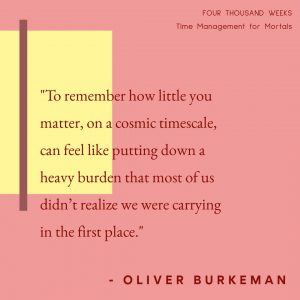《自律養生實踐家之旅352》 時間無法私藏

假設你一個人,擁有用不完的財富、用不完的時間,而且身體健康,可是,世界上只剩下你一人。那麼很清楚的,財富、時間、健康都將失去意義。
情況若稍微改善,你同樣擁有一切,還有伴侶與子女。但除了你們一家人之外,世界依舊空無一人。結果呢?依然沒有太大不同,因為家人若不快樂,你自己也無法快樂。
我們需要餐廳的服務人員,需要交通工具的司機,需要與他人的互動。缺乏這些連結,快樂、成就、甚至自由,都只是一場空。
事實是,生存無可避免的要仰賴他人,但殘酷的是,人往往在失去人身自由之後,才深刻理解這一點,譬如入獄,譬如罹患重病。
當我失去生命伴侶後,才接連發現許多以為可靠的人際關係早已不復存在。那一刻,我才真正覺悟:人與人之間的連結,以及生命中時間的運用,竟如此不同於以往的理解。
想起在衛武營接受預官訓練的三個月,有一次,部隊師長半夜下令全師集合,全副武裝,而且必須隨機取用槍枝。那是一聲令下,所有人立即行動,軍令之下,沒有人可以違抗。
成為老百姓後,即使再嚴格的老闆,也無權強制員工下班後加班,更遑論一個「集合令」就能召集全公司同仁。社會運作雖同樣需要秩序,卻建立在不同的契約與自由之上。
再舉例,曾有一次旅遊團,價格低廉,身邊同事紛紛報名。你卻因為照顧長輩與預算不足,只能忍痛放棄。
不是沒有時間,而是時間被佔用了;不是不想去,而是無力支付。於是,時間雖存在,卻因其他因素無法共用。換言之,光有「時間交集」並不足夠,還需要價值與條件的契合。
我常向學員提出「責任說」的觀點,並非人人都可以接受這種思維,但我始終堅持:當你熟練斷食,責任便落在你身上,你必須揹起傳承的背包。
這份責任,不是由我強加,而是由當事人自覺。當有人領悟到自己對社會、對後代的責任,就會自願背負這個背包。
我當年在感動與覺悟交錯之下,決定為「身體之道」代言,我清楚知道,這是餘生無法迴避的任務。
因為這份責任不是個人的,而是我們共同的資產,是所有現代人必須正視的真相。若無人願意承擔,這片「新大陸」終將曇花一現。
不論有幾個人願意共同承擔,他們除了價值共識,還必須讓「時間」重疊。必要時,時間得交集;關鍵任務,時間必須同步。
這也是我一路走來在組織核心最常遇到的困境:不是私事不重要,而是共識不足,無法凝聚時間。
斷食,本身帶有回歸個人修行的特質,若所有參與者都只看見個人層面,而忽視責任與承擔,那麼結局就是一盤散沙,終將失敗。
在團體中,若沒有人能從身體的觀點與你產生交集,那麼你打算讓身體休息的時間,也只能成為「私人時間」。於是,你雖與身體共處,卻無法與世界共舞,猶如地球上僅剩一個無法定義快樂的人。
然而,這件事的價值早已超越個人健康,它是人類未來福祉的根基,是這群先鋒存在的意義,更是上蒼在非常時期賦予台灣人的重責大任。
承擔之前,你必須先看到未來子孫的健康圖像,先意識到當我們不在時,應留下清晰的足跡。
責任,必須落實在行動,而非流於口號。唯有走在這條主流無法理解的道路上,彼此堅守價值的人,才能共享群體的時間,並最終共享群體的成果。
(在宇宙的時間尺度中,當人意識到自身的渺小,那一刻就像放下了一個從未察覺卻始終背負的沉重行囊。)
Time Cannot Be Hoarded
Imagine being the only person left in the world, possessing inexhaustible wealth, unlimited time, and perfect health. It quickly becomes evident that wealth, time, and health would lose all meaning in such isolation.
Now imagine a slightly improved situation: you still possess everything, but now you also have a partner and children. Yet beyond your family, the world remains empty. The outcome is not much different—for if your loved ones are unhappy, you cannot truly be happy either.
We need restaurant staff, drivers of transportation, and the presence of others to interact with. Without such connections, happiness, achievement, and even freedom dissolve into mere illusions. The truth is, survival inevitably depends on others. The cruel part is that most people only grasp this after losing personal freedom—whether through imprisonment or the grip of serious illness.
When I lost my life partner, I soon discovered that many supposedly reliable relationships had already dissolved. It was only then that I awakened to the stark reality: human connection and the use of time in life are profoundly different from what I once believed.
I recall my three months of officer training at Weiwuying. One night, the division commander ordered a midnight assembly—full combat gear, weapons drawn at random. With a single command, the entire unit mobilized instantly. Under military order, no one could refuse.
Yet as a civilian, even the strictest boss has no right to force employees to work after hours, let alone summon the entire company at a moment’s notice. Society, though equally reliant on order, operates under a very different framework—contracts and freedoms.
Consider another example: a budget travel group that many colleagues eagerly joined. You, however, had to decline, either due to family obligations or financial limits. It was not a lack of time, but that your time was already claimed. It was not unwillingness, but the inability to pay. In such cases, time exists but cannot be shared. In other words, the mere “overlap of time” is not enough—values and conditions must also align.
I often share with students my perspective on “responsibility.” Not everyone embraces this idea, yet I firmly believe: once you become skilled in fasting, responsibility rests upon your shoulders—you must carry the backpack of transmission.
This responsibility is not imposed by me, but recognized by each person. When one realizes their responsibility to society and to future generations, they willingly take up this burden. Years ago, in the collision of inspiration and awakening, I chose to speak on behalf of the “Way of the Body.” I knew clearly this was a lifelong task I could not evade.
For this responsibility is not private—it is our shared inheritance, a truth all modern people must face. If no one shoulders it, this “new continent” will vanish like a fleeting flower.
Those who do share this responsibility must not only agree on values but also align in time. At critical moments, time must overlap; for essential missions, time must synchronize. This has long been the greatest challenge at the core of any organization: not that personal matters lack importance, but that consensus is insufficient to unify time.
Fasting itself carries the qualities of a personal spiritual practice. Yet if participants see only the personal dimension while neglecting responsibility, the end is inevitable collapse—a scattering of sand. In a group, if no one intersects with you from the body’s perspective, then the time you dedicate to resting your body can only remain “private time.” You may dwell with your body, but you cannot dance with the world—like being the last person on Earth, unable to define happiness.
The truth is, this endeavor transcends personal health. It is the foundation of humanity’s future well-being, the very reason this vanguard exists, and the heavy responsibility entrusted to Taiwan in extraordinary times.
Before bearing this weight, you must first envision the health of generations to come, and recognize that when we are gone, we must leave behind a clear trail. Responsibility must be carried out in action, not left as slogans. Only those who walk this path—misunderstood by the mainstream yet steadfast in shared values—can truly share time as a community, and ultimately, share in the collective fruit.


